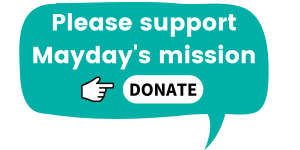Executive Assistant and Quality Assurance Manager, Ciara Killeen gives a very real account of her own journey with the Personal Transitions Service (PTS). Looking at how its strength based and personalised nature impacts on those working behind the scenes in an organisation delivering the PTS and the importance of internal systems change.
The PTS is person-led, personalised and strength based. The Coaches capture so eloquently how this translates to the experiences of the people we work with in their blog posts so I will not try to replicate. But what about everyone else working to deliver the PTS principles? How does a person-led, personalised and strength-based approach apply to the ‘backstage crew’ in order to create internal systems change?
Well, I am an Administrator – it’s what I am good at! I would describe myself as shy, not confident at public speaking, happy to contribute as part of a team but not a team leader. So that’s exactly why I just stood up and gave a 20 minute presentation to 30 of my colleagues about how I am leading on the implementation of the new PTS Accreditation.
Add to the list that I only really write formal documents (this is my 3rd blog), that I am slightly phobic about social media (Tweeting is the new procrastinating) and that I am not too fond of travelling (Birmingham, London and Northampton in 1 week – sure!). In between the travel, presenting and developing the Accreditation, I also book diary appointments for our CEO – Pat, proof read documents, take minutes, all on the move in various locations and far away from my original comfort zone; the office desk.
Before you start to think that I am heading down the rabbit hole, let me make it clear that this is not a moan fest or a cry for help. I am not complaining about the amount or location of my work because I absolutely love the vibrancy and energy of the PTS movement for change, which sees me literally working on the move. This way of working and the opportunities to frequently step outside of my comfort zone have become part and parcel of my working life, for which I am grateful. However, before I got to the grateful part…
I knew where my comfort zone was. It was in the processes that I needed to follow, knowing exactly how and when things should be done. I understood the status-quo of office life; hierarchy, defined job roles, your defined ‘area’ of work. I held on to all of this tightly and, quite honestly, working in this way was making very little difference to the people we work with. I was essentially erasing the main reason I wanted to work for Mayday in the first place.
I was in danger of becoming a barrier to change rather than a ‘systems changer’. At first, I found it difficult to let go of my comfort zone so that the internal, cultural changes necessary to become a truly strength based organisation could happen. It was uncomfortable. I felt adrift.
I had a real world conversation with Pat about whether I belonged in this new PTS environment. Pat’s response was to ask me about my interests, highlight my strengths and provide options so I could choose how to develop my job description. So, essentially, Pat used the key PTS interventions, focussing on my strengths and putting the power in my hands.
I had autonomy for the first time in my working life and with this came questions. Why did I need a desk or office to define a good working environment when I had a laptop and a park? Or I could meet my colleagues in coffee shops?!
Once I had started to question the basic logistics of administration I then started to question the actual work; how can my fellow systems changers use their autonomy to inform processes in a person-led response? I started to argue at meetings that we needed less paperwork, less questions, less meetings in fact! It seems that once you have taken the first systems change steps there is no going back; it becomes a way of life.
Naturally, like the first domino falling in a chain, a person-led internal system developed. We began to understand what dynamic job descriptions meant in reality. Our roles reflected the individual talents we could bring to Mayday rather than traditional roles. I learned that I was good at administration but I was not an ‘Administrator’.
Our lives do not work in straight, prescribed lines. Nor do we have one definition of who we are. This is what we try to convey to the people we work with to encourage their self-belief and internal motivation. So we, the #OneTeam working to deliver the PTS, need to believe this and live this too. This is what a personalised, strength-based working environment looks like; seeing people, not job titles. Seeing talents and understanding the benefit diversity of experience can bring. Supporting this through the one team approach that means there is still a comfort zone – but it is people, your colleagues, and not desks and processes.
This blog is not about me. I have used myself as an example but I could be talking about any one of my colleagues who, for example, work in the Finance Team but stepped out of their comfort zone to co-develop a system for quicker personal budget payments. Or my colleagues in the HR Team, who had to learn about strength based recruitment before working with the PTS Team to co-develop a new recruitment process.
The thing with comfort is that you actually have to be a bit uncomfortable sometimes to find new comfort in something better. And what’s better than a new comfortable working environment which is person-led, personalised and strength-based? That seems worth the discomfort to me.
For us to keep sharing opinions and voices that may not always be popular or heard we need your help:












